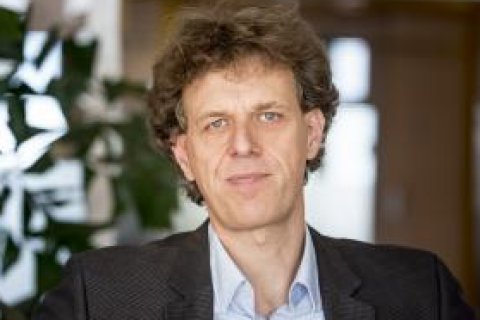Dear reader,
Introduction IMAU newsletter by Thomas Röckmann

As the new IMAU director it is my pleasure to write the welcome address to this newsletter. I have worked at IMAU for almost 19 years as head of the Atmospheric Physics and Chemistry Group. In the first months in my new role, I have taken the opportunity to reflect on my own position and the position of the institute in the research world and in society.
When I started my studies in physics my principal motivation was curiosity. I was fascinated by the ability to describe what we observe around us by physical laws, and I wanted to understand the underlying fundamental principles. I had a great time during my studies: I discovered that each branch of physics was an entry into a world of discovery and innovation.
However, what I also realized is that the more I understood, the fewer people I could share this with, because many fascinating physical avenues focus on questions that are difficult to communicate to non-physicists. This was the reason for me to change my focus from theoretical particle physics to the more applied field of atmospheric physics. An additional motivation was that my research could help solve some of the environmental problems that emerged at that time.
Back then I did not expect that now, 30 years later, climate and environmental issues would be on everyone’s mind, and one of the key challenges facing society. Climate knowledge has spread to the public at large, and there are many well-informed citizens that on specific practical points are even better informed than I am as an “expert”.
My goal to work on a subject of societal relevance and public interest has clearly worked out, but how do I and how does the IMAU as scientific institute take a position in this ongoing public discussion? The Intergovernmental Panel on Climate Change (IPCC) emphasizes the role of all actors in society—individuals, industries, policymakers, and institutions—in tackling climate change. At universities we contribute via the classical pillars of education and generation of new knowledge, but is this sufficient?
My conviction is that our knowledge comes with a responsibility to speak out: Yes, human greenhouse gas emissions are the key cause of climate change, and these emissions need to be greatly reduced very quickly to limit the harmful environmental effects that we are seeing all around us. But how far do we engage in influencing concrete policy decisions? Some questions seem to have easy scientific answers: It does not seem to be a smart idea to continue subsidizing the fossil fuel industry when we know that greenhouse gas emissions need to drop quickly. On the other hand, the political decisions have far-reaching societal consequences and quickly become very polarized, sometimes even challenging the fundamentals of our democratic system.
It will be interesting to navigate with the IMAU through this field of science-society interactions in the coming years.
Thomas Röckmann

